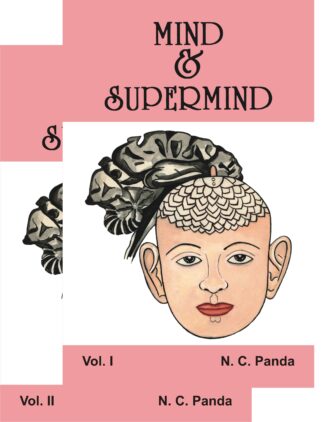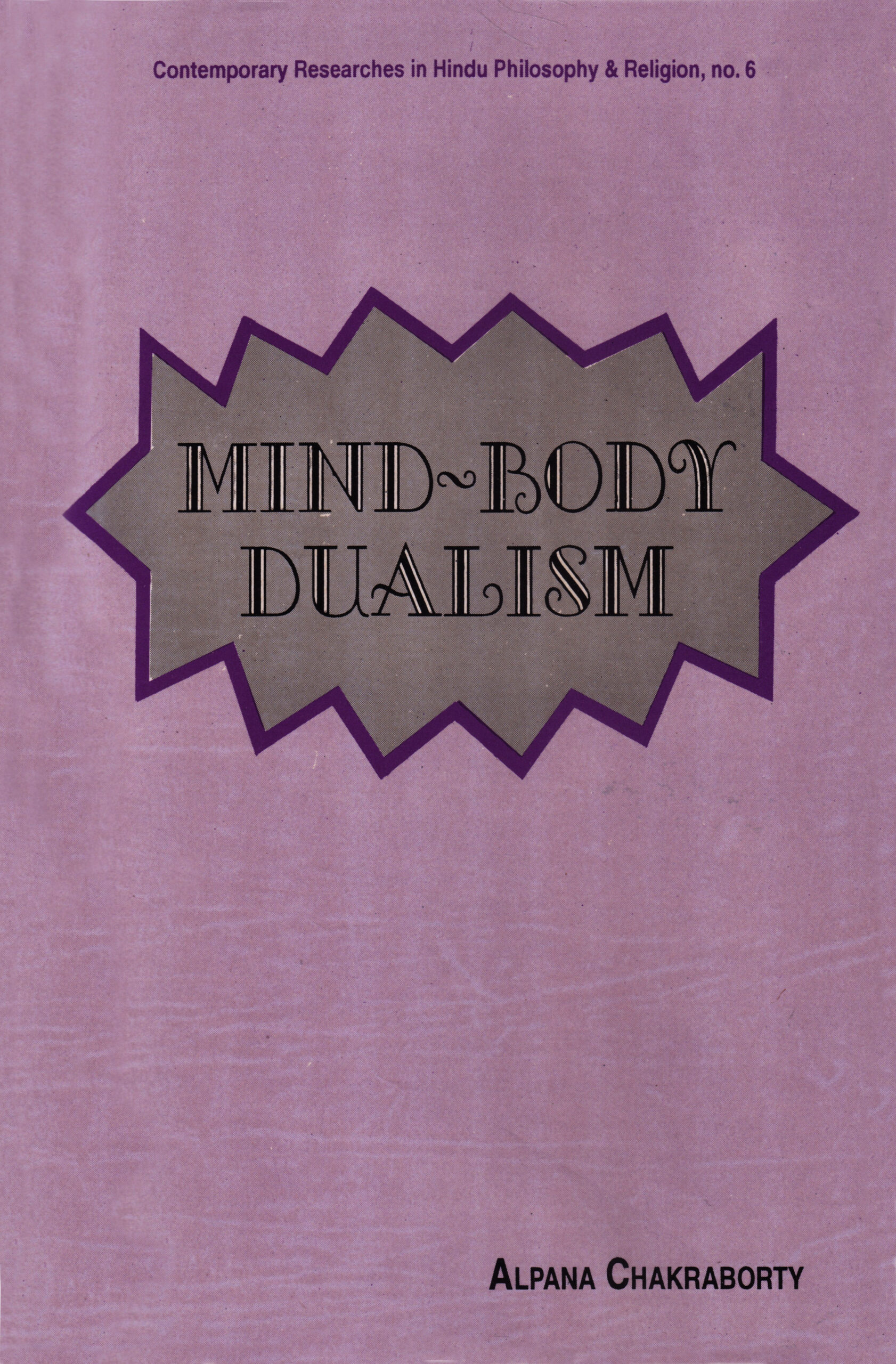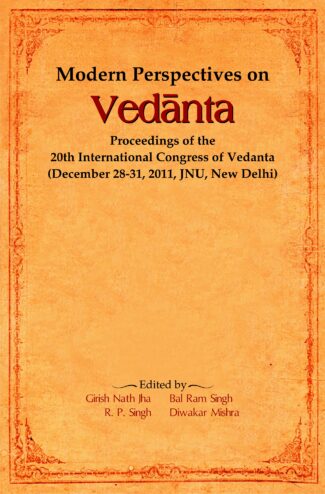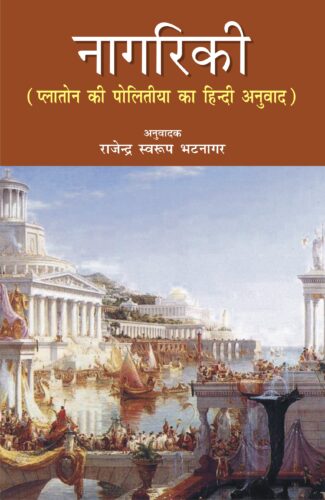Showing 131–140 of 270 results

This uncovers the secrets of mind so that one can awaken, and prepares one for meditation. It breaks a lot of myths about meditation. Human machine has three brains and the book elaborates that using these minds, one can keep away from diseases, stress, ageing, etc. It also teaches one how to transform negative thoughts to creative ones, and how to use the calm mind and intuition to solve our problems that circumvent us in our day-to-day life.
Mind and Meditation opens the doors of wisdom for people interested in knowing what meditation is and how to meditate.
In this book, Dr Amit Jain uncovers the secrets of our mind, so that we can awaken. In simple words, this book prepares us for meditation. It breaks lots of myths related to meditation. The book reveals that the human machine has not one but three brains and how by using the three brains in a balanced way one can keep oneself away from diseases, stress, aging, etc. The book also throws light on different types of minds and how they trap us and destroy our intuition.
Overall the book calls the reader to learn how to transform negative thoughts. For those wanting to achieve a calm mind, it’s a blessing. It also teaches how to use this calm mind and intuition to solve our problems creatively. Insightful and life changing!

The book systematically unfolds Vedantic psychology to evolve an integrated perspective on mind and to synthesize ancient wisdom with contemporary sciences. The author also speculates on linking mind to the supermind the Brahman.
Astonishingly rich is the heritage of Indian psychology. Embodied in some of the better-known, traditional philosophical systems, it convincingly spells out the rationale behind memory, recognition, emotions, instincts, reasoning, creativity, and myriad other mind-related phenomena, which sofar remain baffling, unanswered questions in modern cognitive sciences, mechanistic psychology and their kindred disciplines. Mind and Supermind, for the first time, systematically unfolds Vedantic psychology in its larger effort not only to evolve an integrated perspective on mind, but also to synthesize ancient wisdom with contemporary sciences. A distinguished scholar of Sanskrit, philosophy and science, Professor Panda here re-explores the nature of mind, its Indian concept and how it compares with its Western world-view: religious, philosophical, psychological, and scientific. Thus elaborating the concepts of mind as set out in the Sankhya, Yoga, Tantra, Vedanta and other orthodox systems vis-a-vis (a) philosophical perspectives: from Plato and Aristotle to Wittgenstein and Strawson, (b) psychological viewpoints of William James, Freud, Jung, Watson and others, (c) theories of modern physiologists/physicists governing brain, mind, and artificial intelligence; the author builds a solid foundation for the superstructure of parapsychological phenomena. And also speculates about the possibilities for (individual) mind to link up with the Supermind, which, in Vedantic concept, is Brahman: fundamental Consciousness that illumines everything living and non-living. Growing from years of Dr. Pandas indepth, analytical studies, the book is offered to dis-cerning audiences in two parts: Indian Perspective (Volume 1) and Western Perspective (Volume 2), with relevant illustrative material.

The study reviews the philosophical thinking that has, since Descartes time, been invested in the shaping of this dualistic tradition. It compares the Cartesian view of mind-body dualism with the dualism of traditional Samkhya philosophy.
How do we (basically) conceptualize a human being or, say, any person? Is he just his body? Or a mind too besides his body? What, then, is mind, or how is it related to body? And since body is destructible, does man have disembodied existence as well? Addressing these age-old questions of fundamental importance, the book focusses on mind-body dualism. Which, despite its exposure to scathing criticisms, and even outright repudiations, has survived as a powerful dualistic tradition. Alpana Chakrabortys study is not a critique of mind-body dualism; but a coherent, quintessential review of the philosophical thinking that has, since Descartes time, been invested in the shaping of this dualistic tradition, its theoretical parameters and its key issues. Also setting out Western concepts of person, disembodied existence/survival, and bodily resurrection, the author considers the Cartesian view of mind-body dualism, and how it compares with the dualism of traditional Indian Samkhya philosophy. In her effort to spell out issues central to mind-body interaction, Dr. Chakraborty develops a vast historical framework from the acknowledged treatises/theories of Cottinghum, Don Locke, Gilbert Ryle, C.D. Broad, C.J. Ducasse, Nichlos Bohr, P.F. Srawson, and other Western philosophers including the very recent theories of Complementarity and Meta-Linguistic Dualism. Invaluable to the scholars of philosophy, metaphysics and psychology.

This volume attempts to negotiate with some of the unmitigated issues frequently raised, debated and discussed in the domain of Anglo-American Analytic Philosophy. Viewpoints of some of the major philosopher like W.V.O. Quine, Ruth Barcan Marcus, Pranab Kumar Sen, David Wiggins and Ludwig Wittgenstein along with many others have come up for discussion and elaboration.
This volume includes ten essays written by Prof. Indrani Sanyal in different phases of her long academic career. Essays collected in this volume document the authors attempt to negotiate with some of the unmitigated issues frequently raised, debated and discussed in the domain of Anglo-American Analytic Philosophy. Viewpoints of some of the major philosophers like W.V.O. Quine, Ruth Barcan Marcus, Pranab Kumar Sen, David Wiggins and Ludwig Wittgenstein along with many others have come up for discussion and elaboration.
The first six essays of this volume deal directly with the issues relating to modal logic, quantification, essence and possible worlds. In the next three essays, the author has discussed the viewpoints of the earlier Wittgenstein and later Wittgenstein on logical space, limits of language and the nature of understanding. The last essay of this volume concentrates on the idea of structural universals and debates centring its feasibility.
The book has been written in a clear and lucid language without forgoing the required technicalities of the subject matter. Anybody interested in Philosophy in general and Philosophical Logic and metaphysics in particular will find the volume to be interesting. Scholars and researchers will be definitely benefitted by this volume.
The crisis of the age inheres in this, that notwithstanding the century’s mind-numbing disasters, it persists in subscribing to propositions which have logically led to the atomization of the whole cloth of human experiencing, and being. Great indeed is the value which is placed on the procedure of analytic dismemberment. While the method has certainly been result-producing, materially, in its wake it has brought immense suffering – both physical and spiritual. The price paid for a lopsided advance is thirty major wars – with their toll of one hundred and thirty million lives, and the irreparable destruction of the natural environment. The time demands a reappraisal of the basic paradigms of human existence, but the hegemony of well-entrenched vested interests – material or intellectual – would seem to preclude this.
The “advanced” people among the mankind of the day become suicidally specialized. For, if the mechanical model of thought has been of advantage in man’s preceding unfolding, the same, what may be called the “survival” paradigm, now creates dangerous dualities, binary oppositions (you–me, body–mind, East–West, etc). The model has outlived its usefulness merely enforcing dormancy on a major part of the human brain.
It behoves mankind to choose wisely right now – since parallel to the socio-economic, scientific and technological revolutions there has got to be the overdue radical psychic transformation. The first step towards clearing the fateful crisis would therefore be to be aware and end the hold of the linear, causal, mechanical thought orientation over the intellectual culture of the times.
Delving deep into the epistemological cum ontological causation of the emergency confronting the being and becoming of man, this volume provokes the thoughtful lay reader to a serious engagement with his or her self.

This volume is a compendium of highly insightful papers presented by leading and promising scholars at the 20th intenational Congress of Vedanta. The papers discuss a variety of topics ranging from the origin of the universe to the Vedàntic perspective on the spiritual quest and science as also the essence of Vedànta and its relevance to modern times.
Vedanta has retained its fundamental ideas as enshrined in the Upanishads over the centuries. But it is still extremely relevant in addressing the contemporary problems of globalised and liberalised societies. It is in this context that the Vedanta Congress has met at regular intervals to debate and discuss challenges faced by contemporary societies.
This volume presents a compilation of papers presented at the Twentieth International Congress of Vedanta, held at the Jawaharlal Nehru University, New Delhi. The papers cover a variety of topics in English, Hindi and Sanskrit: philosophy of the origin of the universe, the behaviour of matter, social structures, political systems, role of language, yoga and meditation, among others. The insightful papers discuss the Advaita concept of testimonial perception, the concept of maya, the notion of time and space in the cosmology of the Samkhya system of philosophy and the Vedantic perspective on the spiritual quest and science. They deal with the nature and theory of origin of varna in the Bhagavad-Gita, Vedantic perception of organisational behaviour, importance of Vedanta in the corporate world, and value systems in governance with reference to Indian dharmic perspectives. These papers also highlight the essence of Vedanta as it applies to modern philosophy, science and business and the influence it exerts on culture, language and lives of people in India and the world.
The volume will prove valuable to scholars and students of Indology, religion and philosophy, particularly researchers of Vedanta and its relevance to modern times.

This book is a compilation of research papers which explore the various dimensions of morality and social justice and their intersection with justice, human rights, reservation and reverse discrimination, rights of children, etc. with a view to creating a society comprising peace and ordered liberty.
The highly stratified Indian society, with a history of domination by a few on all the sections of the society, is going through a predicament. There is a crisis for justice in every section of the society, particularly in those who have been tormented for centuries. In spite of many giant thinkers and much ameliorating process at the governmental level, social harmony has been on a constant decline.
In view of such a social situation, the modern concept of social justice appears to be complex. In a bid to provide social justice, attempts have been made to synthesize the meritarian and egalitarian elements, but the chaos at the distribution level of goods and services has led us to a long, dark tunnel, seemingly with no way out!
The ICPR-sponsored national congress on Morality and Social Justice convened at Patna, January 2729, 2008, explored the various dimensions of morality and social justice in an apparent attempt to find a way out of the quagmire. Presentations from the seminar have been collected in the volume, which addresses the intersection of morality and social justice with justice, human rights, reservation and reverse discrimination, rights of children, religion, development, and many more.
The comprehensive volume includes contributions from such well-known scholars of social philosophy as editor Abha Singh and a host of others from multi-disciplines across India. The volume is an unprecedented examination of social situation prevailing in India, an honest assessment of how social harmony can either be destroyed or be preserved, and a thorough exploration of what steps might be necessary for the much-needed moral energy and social imagination in order to create a society comprising peace and ordered liberty.

Setting out a spiritual dialogue between Saiva and Christian mysticism, the book articulates world-views of the mystical traditions of Saiva-Siddhanta, Kashmir Saivism, Meister Eckhart, Hadewijch, Julian of Norwich, St. Ignatius Loyola and of the Eastern Christianity.
If mysticism is hard to define, what is it then? Or, why have mystics often spoken about what they have realized notwithstanding the unspeakability of a spiritual experience? And, yet more significantly, how can a meeting point of different religious traditions be discovered at the mystical level? Focussing on these and other related questions, eminent scholars from varying religious traditions here explore the nature of mystical experience in two of the worlds major traditions: Hinduism and Christianity. Neither a comparative study of religious traditions, nor an attempt to develop an overall mystical theology, the book sets out a spiritual dialogue between Shaiva and Christian mysticism: a dialogue wherein the participants articulate worldviews of the mystical traditions of Shaiva Siddhanta, Kashmir Shaivism, Meister Eckhart, Hadewijch, Julian of Norwich, St. Ignatius Loyola, and of the Eastern Christianity. And, without taking any a priori intellectual position, each author here evolves his/her own tradition-specific perspective on mysticism letting the comparisons, if any, to surface in the dialogue itself. A spiritual dialogue, like the one this multi-author work embodies, holds a key to an insightful understanding between different people, cultures and faiths more specially in todays world riven, as it is, by fundamentalist forces and endless religious conflicts. The book will be a valuable acquisition for the scholars and spiritually interested readers alike.

Nagariki is a Hindi translation of Politeia of Platon (Plato). Usually the subject matter of the book has been taken to be the organization of state or city and it has been thought that Plato is presenting an ideal form of the state or city. But it appears that this kind of discussion has been a way to present the notion of justice and to show how it is different from injustice and what is its role in the life of an individual and the city.
This book Nagariki is a Hindi translation of Politeia of Platon (Plato). A number of translations of this book are available in English entitled the Republic.
In fact the Republic is not the proper translation of Politeia of Platon for Plato did not accept the idea of democracy, on the contrary he had criticized this form of state.
Ordinarily the theme of the book has been taken to be state or the polity of a city. Usually it is understood that Plato is presenting an ideal form of a state. But it seems that the discussion of the forms of state is meant to show what is the notion of ßjusticeû, how is it different from the notion of ßinjusticeû and what significance it has in the context of an individual and the city.
Two things have specially been taken care of in this translation. First, that it brings us nearer the Hellenic or Greek atmosphere. Second, the dialogue has been presented in such a way that the conversation is taking place among the people who are intimate and familiar with each other. This translation aims to convey the notion of virtue and its relation to justice. In Politeia the discussion on virtue has been conducted in the context of both Þ individual as well as the city. As compared to other dialogues of Plato, the notion of virtue is highlighted in this dialogue in a more significant way.
The presentation of this translation has also been felt necessary because other translations in Hindi are not easily available.

This bilingual volume talks about the varied problems of philosophy in terms of definition, philosophical thinking, and the relation between thought and language. Problems that confront to a reflective mind need to be analysed, clarified and resolved. The book fulfils that task.
“Nature of Philosophy is a bilingual volume in English and Hindi. It talks about the varied problems of philosophy in terms of definition, philosophical thinking, and the relation between philosophy and language. Akin to any other discipline, in philosophy too, problems concerning it need to be analysed, clarified and resolved for a proper understanding and, it is the ultimate goal of this book. Herein, problems are made clear by analysis, questioning and critical method. The clarity thus achieved prompts us for philosophical reflection to the extent of removal of the problem and a discriminate understanding of the concept. It emphatically states that since philosophical problems are the objects of reflection, philosophical reflections aim at conceptual clarity by analysis, interpretation and wisdom. The question of any sort of risk against philosophy does not hold any merit. It is because philosophy fulfils human aspirations and truth of reasoning to confront with and reflect on problems to remove them. This book offers a thumbnail sketch of the varied problems of philosophy and proffers solutions to them in an efficacious manner.”
| There are no products |